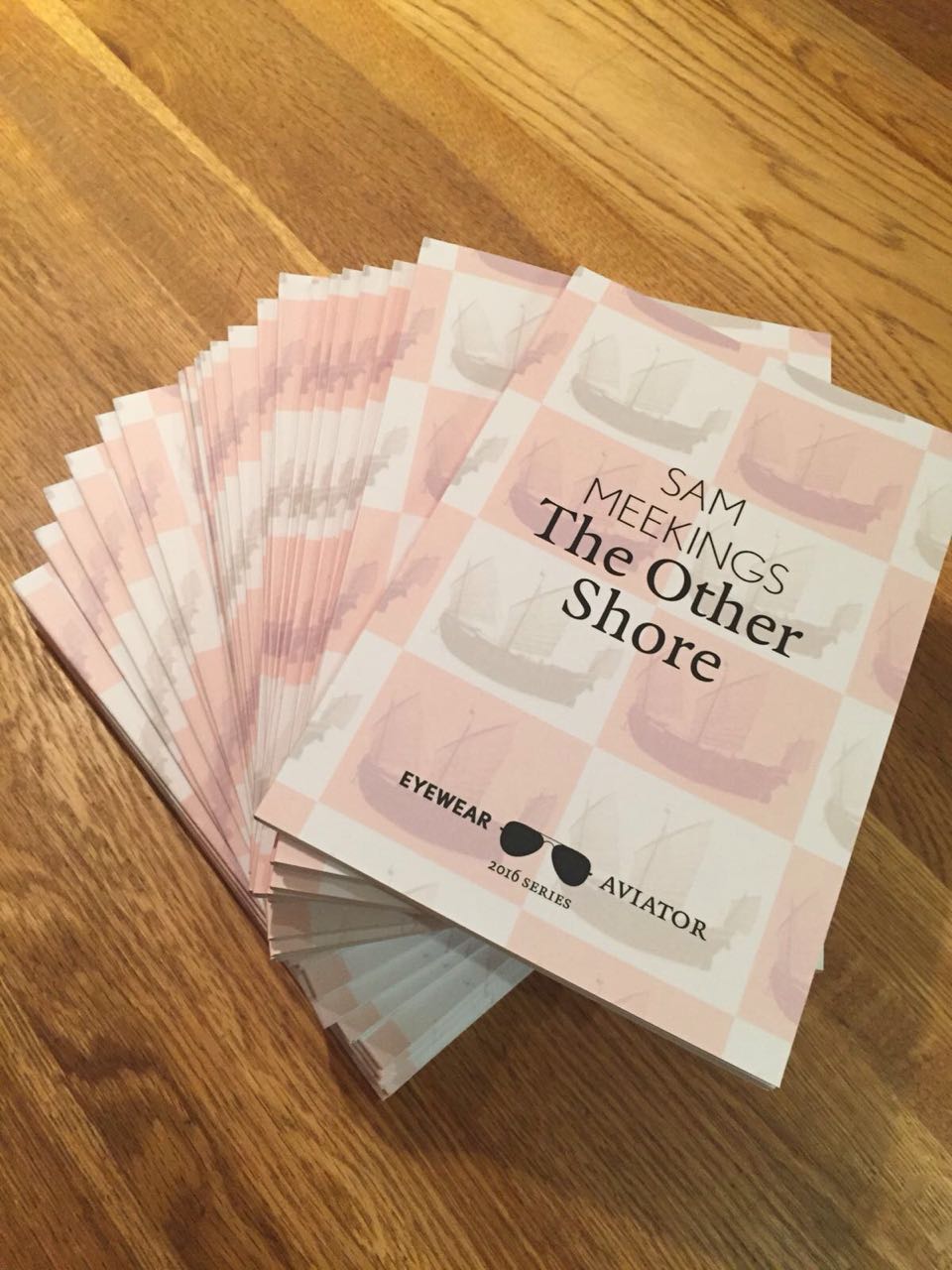I’m delighted to announce that my latest poetry pamphlet is now out. It’s called The Other Shore, and it’s been published by Eyewear Press.
Quite a few people have asked me about the title already. It comes from a Buddhist parable I first heard when I was travelling in China, about a man who journeys along a difficult path until he comes to a stretch of water. All around him are dangers and troubles, but the other shore in the distance looks calm and inviting. He works hard, and constructs a raft from twigs and branches and grass, and at last paddles out into the water. When he reaches the other shore, the Buddha asks, what should he do? Of course, he must abandon the raft.
 The parable is often taken to mean that teachings – be they Buddhist dharma, or any principles or beliefs that one lives by – can only take a person so far, and that there will come a time when you must venture further on your own. (Of course, this is not the only interpretation, and the meaning of the lesson has been much debated.) But this is the idea that appealed to me, to keep going you may have to give up much of you used to take for granted.
The parable is often taken to mean that teachings – be they Buddhist dharma, or any principles or beliefs that one lives by – can only take a person so far, and that there will come a time when you must venture further on your own. (Of course, this is not the only interpretation, and the meaning of the lesson has been much debated.) But this is the idea that appealed to me, to keep going you may have to give up much of you used to take for granted.
What is the Other Shore? It’s the place we aim for, and hope one day to reach. But it might also be the place we reach once this life is over. Not long after my brother died, I started travelling through China, in search perhaps of some other shore where life is different. All the poems in this collection were written during or after those travels.
My exploring took me along the path of the Silk Road, that winding and multitudinous trail that stretches across continents. In the past, travellers and traders working their way along it would have finally reached Xi’an, the capital city of Tang Dynasty China. It was here that I travelled too, and here that the germ of many of these poems was planted.
The book contains a number of translations and adaptations of Chinese poetry, all from the Tang Dynasty (618–907), often referred to as China’s ‘Golden Age’ of art and literature. I was drawn to the poetry of this time because it takes the strict forms of previous ages but uses them to reflect not on formal and ornate courtly themes but on the messy, untamed world beyond the palaces and temples.
In these translations, and in the other poems I wrote about the journeys I took, the places I visited, and the stories I heard from the people I met, I aim to draw attention to one reason for travel, and indeed for reading: of engaging in an unending conversation with the past. In this way, I sought to try what those poets from a thousand years did before me, by taking traditional forms, and adapting them to new ideas. After all, as any traveler knows, the end of any journey is also the beginning of another.
In other words, these are poems about how to reach that other shore.
A Digital Rebirth: The Book of Crows at The Pigeonhole
My 2nd novel, The Book of Crows, is about to be serialised on (an online book club). There are still a few spaces up for grabs, so why not join in? I’m really excited about this new digital rebirth for the novel. It’s a few years now since it was first published, and […]